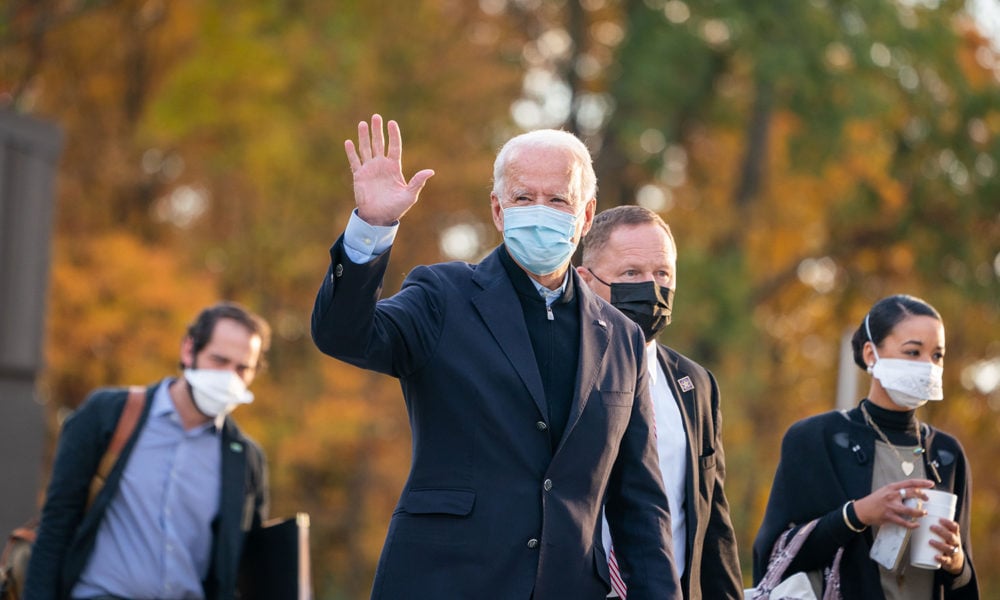In the Trump administration’s final months, we are seeing a race to jam through damaging executive orders and policies and nominate or hire people for jobs they will only hold for just a few weeks. By law, there is a distinct difference between civil service and political appointee positions, but the Trump administration has made it easier for political appointees to burrow in and/or civil service employees to be fired. President Trump is intent on leaving the federal government in a difficult position, strapped for resources and capacity at a time when there is critical work to do to respond to a range of threats, from COVID-19 to climate change. There are many things the Biden administration can do early in 2021 to help remedy the damage done, but in particular, the appointment of independent, qualified, experienced leaders of federal agencies can speed up the necessary renaissance.
Strong leaders reflective of America’s composition must be prioritized
One thing became very clear as we reviewed the results of UCS’ federal scientist survey in 2018: scientists across many federal agencies have been unable to do their jobs to the best of their ability under the Trump administration. Since the start of 2017, agencies have been hollowed out, and there has been a sharp decline in expertise and capacity. Reduced staff capacity combined with political interference and the absence of leadership in some cases has made it harder for scientists to carry out important work.
As the threat of political influence looms large over the government, much of federal scientists’ ability to do their work to advance the mission of the agencies has to do with the quality of leadership and the administrator or commissioner’s commitment to evidence over politics as a basis for decisionmaking. We learned that under former FDA secretary Dr. Scott Gottlieb’s leadership, scientists felt confident in FDA’s commitment to scientific integrity and their ability to continue to do their mission-critical work. Dr. Stephen Hahn’s leadership of the FDA, especially in the wake of responding to COVID-19, has been markedly different, with scientists reporting that he has not been the firewall against political interference that they needed. Among the criteria for selection should not just be strong leadership and management skills, which go a long way toward boosting morale and accomplishing the administration’s goals, but a genuine desire to harness the talents of staff, fill gaps, and “build back” a trustworthy institution.
The Biden administration has already announced its goal of having the most diverse cabinet in U.S. history. Heads of agencies and key political appointee positions must be representative of our country’s diverse makeup (racial, ethnic, gender, and sexual orientation) so that different perspectives and lived experiences are considered in the decisions made at the top. This is critical because we, the people, don’t get to elect these positions. We put our faith in the person who we vote in as president to appoint people within the government who will look out for our best interests. Every individual at the top must be committed to building back a government that is committed to meeting its mission while fostering an inclusive and equitable workplace.
Strong qualifications and integrity must be guaranteed
The appointment of unqualified individuals or those hostile to the very agencies they are charged with running undermines the public’s faith in government and politicizes traditionally nonpartisan government functions, such as scientific research. The Trump administration has filled powerful positions at agencies with people who had no business being there. Some appointees lacked the right qualifications altogether (like Sam Clovis’ botched nomination for the USDA chief scientist role), while others have appropriate degrees, but have spent their careers attempting to undermine science-based decisionmaking.
For example, coming straight from the chemical industry trade group, the American Chemistry Council, Dr. Nancy Beck avoided adequate ethics vetting because she was hired using a Safe Drinking Water Act provision allowing appointments without following relevant civil service laws. She was then nominated by President Trump for the 7-year term of Chairman of the Consumer Product Safety Commission (CPSC), movement for which has been thankfully stalled since this summer due to widespread opposition. David Legates was hired as NOAA’s deputy assistant secretary of commerce for observation and prediction. He holds this high-level position at an agency whose mission is to predict changes in climate despite his long history of questioning well-founded climate science and his affiliation with the Heartland Institute—a climate denialist think-tank.
Conflicts must be avoided
To preserve its integrity as a policymaking tool, scientific research—including how it is translated into federal policy—must be protected from political, ideological, and financial influences. The ethical code of conduct for federal employees specifically requires the removal or management of financial conflicts of interest that would affect an employee’s objectivity and attention to activities, calling into question that person’s impartiality. This is critical: when people with vested political, ideological, or financial interests influence decisions, the resulting policy outcomes are less likely to serve the public interest and more likely to jeopardize the health of people and the environment. We have seen this play out under the Trump administration across the board.
A good example of what not do is the Trump administration’s nomination of Nancy Beck as chairman of the CPSC. The CPSC’s establishing statute, the Consumer Product Safety Act, advises that the President nominate individuals “who, by reason of their background and expertise in areas related to consumer products and protection of the public from risks to safety, are qualified to serve as members of the Commission.” In particular, “protection of the public from risks” was never her priority. Nancy Beck spent years at the American Chemistry Council sowing doubt around established science and brought her same playbook with her to the EPA. While serving her in her role at the chemicals office, she chose not to recuse herself from a range of science and policy decisions in which her former employer had a stake. While she may have scientific credentials, her work history is rife with reasons her name shouldn’t have ever made it onto the list of potential commissioners, let alone the chair. Further, a recent report we published showed that enforcement actions on children’s products declined sharply under the Trump administration. A new CPSC chairman needs to stand up for consumer safety and hold manufacturers accountable for faulty products.
At CPSC and other federal agencies, we need individuals who don’t have financial conflicts and whose careers reflect a commitment to objectivity and integrity. The Biden administration can take the first stab at selecting individuals who embody these values, but we also need stronger, enforceable protections to address conflicts of interest and protect against improper influence in scientific research and policymaking. You can find all of our recommendations on dealing with COIs at federal agencies in a recently released factsheet here.
Politics must be set aside to ensure confirmation of qualified appointees
Once nominations are formally made after President-elect Biden’s inauguration, the Senate will be responsible for vetting nominees for conflicts and voting to confirm if they are qualified. With much work to be done to rebuild lost capacity and get to work advancing a science-based agenda, we need strong leadership in place at the agencies as soon as possible. This means that politics must be set aside. Senators must do their jobs to ensure smooth and timely hearings for all nominees and make decisions based on nominees’ qualifications and commitment to scientific integrity, not political litmus tests.

